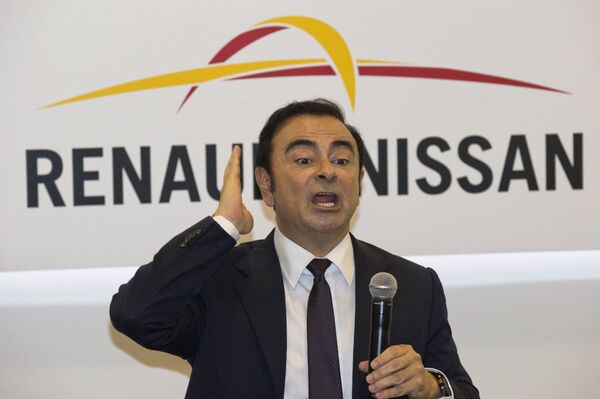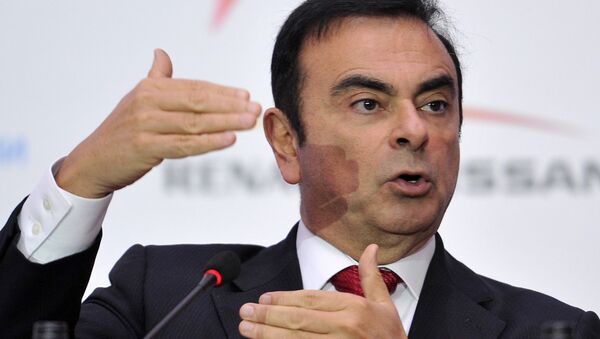Former car tycoon Carlos Ghosn's escape from Japan despite being under heavily guarded house arrest is "unjustifiable" and he is thought to have left the country using "illegal methods", the Japanese justice minister said on Sunday, 5 December, in the first official public comments on the case, writes The Telegraph.
Masako Mori said on Sunday there were no public records of the 65-year-old former Nissan boss leaving Japan.

"It is believed that he used some wrongful methods to illegally leave the country. It is extremely regrettable that we have come to this situation. The flight by a defendant on bail is unjustifiable," said the minister. The escape is viewed as a huge embarrassment for the Japanese justice system.
Mori confirmed that Japan was undertaking an investigation into how Ghosn was able to leave the country.
"Our country's criminal justice system sets out appropriate procedures to clarify the truth of cases and is administered appropriately, while guaranteeing basic individual human rights," she said.
Tokyo's public prosecutor's office responded by saying the escape proved their previous argument that Ghosn should have been kept in custody as a “flight risk”.

The case has also reignited the debate over Japan's justice system, where there is no presumption of innocence and the accused can be held for months before trial. Critics have branded it as “hostage justice,” while prosecutors argue the lengthy detention is necessary to prove guilt beyond reasonable doubt.
Interpol has issued a "red notice" for Carlos Ghosn, urging police forces around the world to arrest him.
‘Rigged Justice System’
In a statement issued after he arrived in Lebanon, which does not have an extradition treaty with Japan, Ghosn attacked the Japanese justice system, vowing to tell his story to the world's media next week.
As the businessman who chaired the alliance between Nissan, French carmaker Renault, and Mitsubishi denied the charges against him, he said:
"I am now in Lebanon and will no longer be held hostage by a rigged Japanese justice system where guilt is presumed, discrimination is rampant, and basic human rights are denied. I have not fled justice - I have escaped injustice and political persecution."
Ghosn plans to hold a press conference in Beirut this week.
Houdini-like Escape
The details of Ghosn’s dramatic flight from Japan are still unclear; there have been unconfirmed reports that he had been smuggled out in a musical instrument case left over from a Christmas band’s performance at his home in Tokyo.
Japanese public broadcaster NHK reported a surveillance video showed him leaving his house around noon on Sunday on his own, to finally board a private jet to Beirut via Istanbul.
‘Fall From Grace’
Carlos Ghosn, the Brazilian-born French businessman who was raised in Lebanon from the age of six, had faced multiple charges of financial misconduct that he denies.
Ghosn, who rose to become the car industry's most powerful executive and united Japanese firms Nissan and Mitsubishi with French company Renault in a global alliance, was suddenly arrested in November 2018 in Tokyo over allegations of dramatically under-reporting his earnings to the Japanese government while at the helm of Nissan and misusing company assets.
He says the charges, which carry a potential prison term of up to 15 years, are a politically motivated stitch-up by opponents of his planned merger of Nissan and Renault. What exactly happened has never been established.
The executive was locked up in Tokyo Detention Centre for more than 100 days and reportedly grilled by investigators for hours as they sought to extract a confession before he went to trial.

Ghosn, 65, won bail in April 2019, but with strict conditions, which included a ban on overseas travel and living under surveillance.



